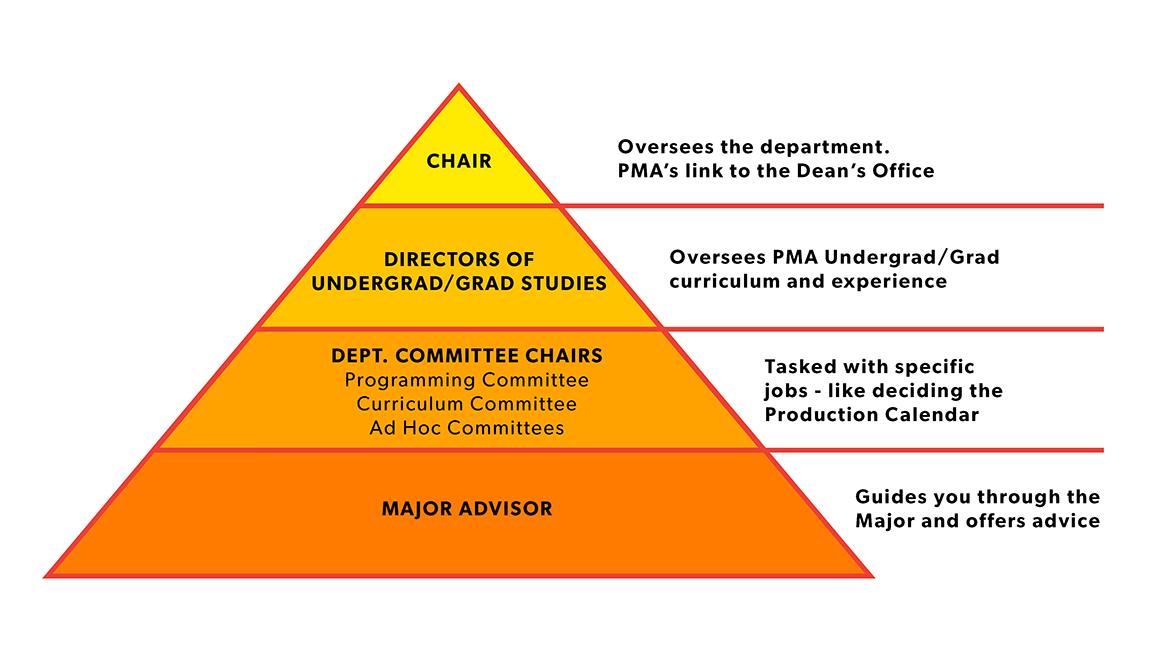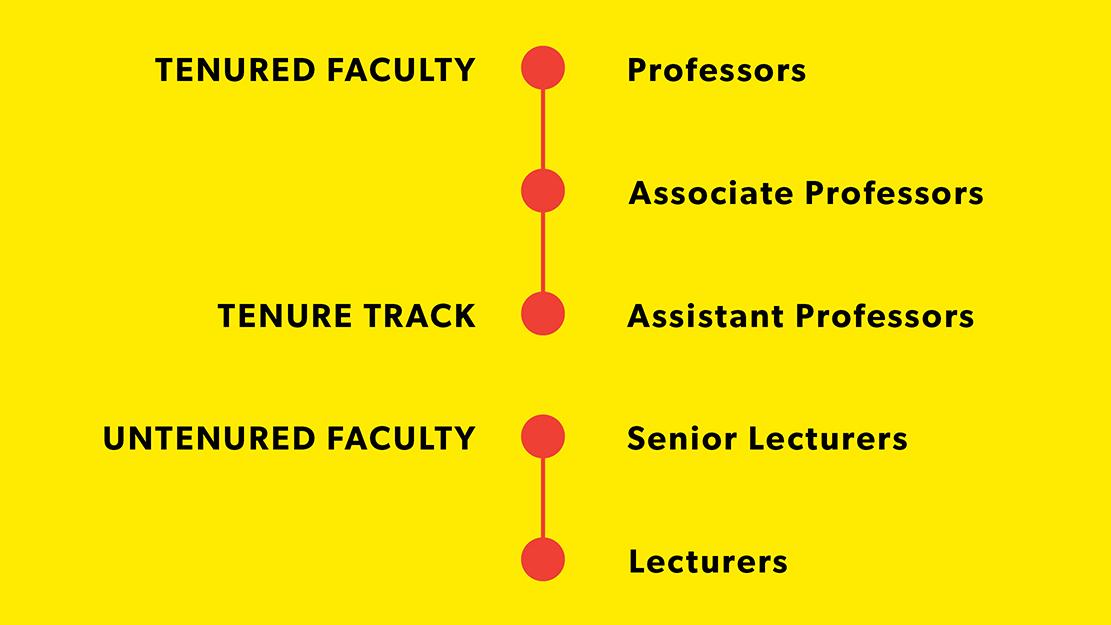Welcome to the Department!
So you’ve taken a few classes and have decided to take the leap to minor or major in Performing and Media Arts. Welcome! We are so happy to have you. This guide is meant to answer just some of the most common questions, or at least help you know where to start looking.
To start, who are we? What do we do?
Cornell’s Performing and Media Arts department (PMA) is located in the College of Arts and Sciences. We offer one undergraduate major, PMA, and four minors: PMA, Theatre, Film, and Dance. We also house the Media Studies minor which offers courses across different departments. If you have questions about declaring or course enrollment for any of these, feel free to reach out to our Undergraduate Coordinator (Donna Miller, dm246@cornell.edu). We also house a PhD program for graduate students. We serve approximately 400 students across the major and minors, and always push for more, so tell your friends!
Courses in the department span the four core rubrics for the major: History, Theory & Criticism (HTC for short); Design; Creative Authorship; and Embodied Performance. For more information about coursework and rubrics, go to our website, or reach out to your faculty advisor or the Director of Undergraduate Studies.
What is a Director of Undergraduate Studies?
Great Question! The Director of Undergraduate Studies (DUS; a PMA faculty member) fields a lot of questions about the undergraduate curriculum. Are you officially declaring a major or a minor? You have to talk to the DUS. Do you want to transfer credits? The DUS has to approve it. Because minors are not assigned official faculty advisors, the DUS serves as their point of contact for all requirement related questions.
As you can imagine, the Director of Undergraduate Studies interacts with a lot of undergraduates. Make sure you’re one of them! Develop a relationship with the DUS regardless of your major/minor status, because they are one of the biggest advocates for undergraduates for the faculty. You can find out who the current DUS is by looking here: pma.cornell.edu/faculty
What are all these academic titles mean?
It can be helpful to understand the hierarchies of the department, and academia in general. This can help you figure out who to approach if you are running into trouble.
The Chair is the head of the department, and oversees the faculty. They are the link between the Dean’s office and the department. The Director of Undergraduate Studies and the Director of Graduate Studies oversee those different groups of students and those parts of the curriculum. Faculty also chair individual committees; the Programming Committee, for instance, decides the annual production calendar and helps keep productions and events on track. You can (and should!) start with your faculty advisor and work your way through some folx for help.
You might wonder what the distinctions are between faculty members: specifically tenured and untenured faculty. Tenure is a great honor and a high achievement, and means that these faculty members don’t need to be reappointed; their appointments can only be ended in extraordinary circumstances. There are some other things associated with tenure, but that’s the important thing to know. Associate Professors and Professors are tenured. Assistant professors are tenure-track, and lecturers and senior lecturers do not receive tenure. Untenured faculty and tenure-track faculty are reviewed by their tenured peers when applying for tenure. This can be a useful dynamic to recognize when looking for help, or when interacting with faculty.
Okay, I feel good about being in the classroom, but I want to do more!
Absolute music to my ears! There are so many ways to get involved outside of the classroom! We offer everything from theatre productions, dance productions, and film projects, to workshops and work-study jobs. I’ll touch on a few of these and places to find out more information.
First, it’s important to know that there is a Programming Committee within the department that establishes the production calendar for the department. The PMA production calendar has slots for fully resourced productions, readings and workshops, student theses, and other kinds of productions. This committee is responsible for deciding what projects go where, allocating different amounts of money to each project, and setting the production priorities. This committee is made up of faculty and staff, with an undergraduate and a graduate student representative.
Projects can be led by anyone(!) in the department; faculty will lead some projects, such as Locally Grown Dance, while students also have the chance to lead projects, like the student thesis films.
Cool, cool. But where do I actually look to find out about opportunities?
So many places! The best place to look is the PMA interest listserv through Campus Groups. This is for anyone interested in staying up to date on department events! You should be automatically registered to receive those emails once you officially declare a major/minor with the Undergraduate Coordinator. If you are not receiving those emails, you can sign up here: cornell.campusgroups.com/PMA/club_signup
You will also be signed up for the majors listserv or minors listserv, depending on which you declare. These lists are focused more on curricular updates, but some events will also be advertised here. If you have declared, and are not receiving these emails, just check in with the Undergrad Coordinator via email or at their office on the 2nd floor.
Next place to look is on our social media! We are @cornellpma on Instagram and Twitter. You can look up Cornell Performing and Media Arts to like and follow us on Facebook and Linkedin. We also post physical notices in the Green Room, in the lobby, and around campus.
Want a more interactive option? Be sure to check out the Participation Kick-Off event at the beginning of each semester. There you’ll meet the students, faculty, and staff who are leading that semester’s projects and hear more about each opportunity. Dates for the participation event will be shared via social media and the listserv, as well as on the PMA website homepage.
What’s the Green Room?
Ah the illustrious Green Room. This is the student lounge in the department. It is open throughout the day and evening to students to use to gather and relax. There’s a small kitchenette with a microwave and mini-fridge and lots of seating. There are also bulletin boards where events and opportunities are posted.
The Green Room is across the hall from the Reading Room (Schwartz 124). If you’re coming from the main entrance, it’s the door on the right in the hall leading to the Flex theater.
Alright, awesome! Are there any clubs or student-only spaces?
OF COURSE! There are a whole host of performing groups on campus for everything from dance to film to theatre to a cappella. I’m only going to go over a few here but make sure to check out Club Fest and/or the Campus Groups website to find more.
First up is CAMP, or Cornell Ambassadors for Media and Performance. This is a department affiliated group that welcomes students across the department who are interested in socializing, promoting and sponsoring events, and advocating for students. They are a great place to find performance opportunities UNIVERSITY WIDE.
Next are Film Club and DKA. Film Club is a club for students interested in film production. They can help people get access to film and editing equipment and training! DKA is the Delta Kappa Alpha Professional Cinematic Society, a pre-professional fraternity for folx interested in film.
If you’re interested in completely student-run, student produced work, check out Risley Theatre and CogDog Theatre Troupe. These groups produce shows on North Campus in the theater at Risley.
Find out more and connect with these orgs by searching for them on Campus Groups, or, for DKA, visiting their website.
There are a whole host of other clubs and organizations that center performance outside the few mentioned here. I encourage everyone to ask around and try out a few different clubs to see what fits!
Whew, that was a lot of information.
I know, I know. And I might not have answered all of your questions. If you have more questions about coursework and course requirements, be sure to check out the Academics tab on the PMA website.
Questions about who’s who? Check out the Faculty tab or the Department Contacts page under the Resources tab on the website.
Still have questions? Go to your faculty advisor, go to your faculty advisor, go to your faculty advisor! They are there to help and advise you. If you need help outside of your faculty advisor, go to the Director of Undergraduate Studies or another trusted faculty or staff person in the department. They will either answer your question or point you to the person who can.
Thank you so much for all your help! What’s your name?
How could I forget to introduce myself? Hi, my name is Carley Robinson and I’m a Cornell alum! I graduated in December 2020 with a major in Human Development and minors in Theatre and Education. I’m always happy to connect with students so if you have questions for an alum, feel free to shoot me an email at csr226@cornell.edu.
And if you have any ideas of how to make this guide better, please send your suggestions to pma@cornell.edu.



